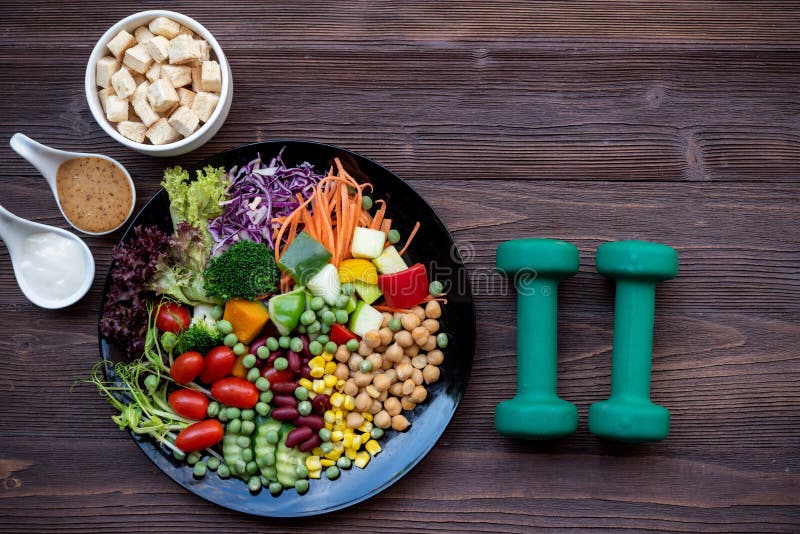Anti-Inflammatory Foods: Your Comprehensive Guide to a Diet that Promotes Health and Longevity
Have you ever felt a mild, persistent ache, unshakeable fatigue, or perhaps noticed that your body takes longer to recover? These might be subtle signs of chronic inflammation in your body. Unlike acute inflammation, which is a natural and beneficial response to injury or infection, chronic inflammation is a silent, long-term condition that can be the gateway to many serious chronic diseases, such as heart disease, type 2 diabetes, certain cancers, and even depression [1] [2].
Fortunately, controlling this condition is not limited to medication. One of the most powerful and effective tools to combat inflammation lies in your daily plate. Adopting an anti-inflammatory diet is not just a passing fad; it is a science-based nutritional strategy aimed at providing the body with protective compounds that help calm the inflammatory response and improve overall health.
In this detailed guide, we will explore what inflammation is, how food can be your remedy, and we will provide you with a comprehensive list of the best foods to embrace and those to avoid, along with practical tips for starting your journey toward a healthier and more vibrant life.
---
Understanding Inflammation: The Friend That Turns Foe
What is Inflammation?
Inflammation is the body's natural defense mechanism. When the body is exposed to a threat (such as bacteria, a virus, or an injury), the immune system sends special cells and chemicals to fight the invader and begin the healing process. This is acute inflammation, and it is essential for life.
However, when this defensive reaction persists for a long time without a clear threat, it turns into chronic inflammation. In this state, the immune system mistakenly begins to attack healthy body tissues, leading to cell and organ damage over time. This damage is what contributes to the development of chronic diseases [3].
How Does Food Affect Inflammation?
The food we eat contains active molecules that can directly influence the inflammatory pathways in the body.
Pro-Inflammatory Foods: Some foods, especially those rich in added sugars, trans fats, and refined carbohydrates, can increase the production of inflammatory molecules like cytokines and alter the balance of gut bacteria in a way that promotes inflammation [4]. Anti-Inflammatory Foods: These foods are rich in compounds such as Antioxidants, Polyphenols, and Omega-3 Fatty Acids. These compounds work to neutralize free radicals, inhibit enzymes that cause inflammation, and support gut health, leading to lower levels of inflammation in the blood [5].
---
The Heroes List: The Best Anti-Inflammatory Foods
The anti-inflammatory diet is very similar to the Mediterranean diet, focusing on whole, unprocessed foods. Here are the most important food groups you should adopt:
1. Fatty Fish (Omega-3 Source)
Fatty fish such as salmon, mackerel, sardines, and tuna are among the most important sources of Omega-3 fatty acids (EPA and DHA). These acids are the building blocks for molecules that help resolve inflammation.
Recommended Intake: At least two servings per week.
2. Colorful Fruits and Vegetables (Antioxidants)
The darker and more vibrant the color of the fruit or vegetable, the higher its content of antioxidants and polyphenols.
Berries: Such as blueberries, strawberries, and cranberries. They contain Anthocyanins, which are powerful antioxidants. Dark Leafy Greens: Such as spinach, kale, and collard greens. Rich in vitamins, minerals, and plant compounds that reduce inflammation. Broccoli and Cruciferous Vegetables: Contain compounds that help in detoxification and reduce oxidative stress. Tomatoes: Rich in the compound Lycopene, a powerful antioxidant that reduces inflammation, especially when cooked with olive oil [6].
3. Healthy Fats (The Golden Key)
Not all fats are created equal. Healthy fats are essential for the absorption of fat-soluble vitamins and for providing anti-inflammatory compounds.
Extra Virgin Olive Oil: Contains the compound Oleocanthal, which acts similarly to some non-steroidal anti-inflammatory drugs (NSAIDs) [7]. Avocado: Rich in monounsaturated fats and Vitamin E. Nuts and Seeds: Such as almonds, walnuts, flaxseeds, and chia seeds. They provide Omega-3, fiber, and Vitamin E.
4. Whole Grains and Legumes (Fiber)
Dietary fiber is a crucial component in fighting inflammation. It helps lower C-reactive protein (CRP), a key marker of inflammation in the blood [8].
Whole Grains: Such as oats, brown rice, and quinoa. Legumes: Such as lentils, fava beans, and chickpeas.
5. Herbs and Spices (Hidden Treasures)
Spices and herbs are concentrated sources of anti-inflammatory compounds.
Turmeric: Contains Curcumin, a powerful anti-inflammatory and antioxidant compound. Ginger: Contains Gingerol, which inhibits inflammatory pathways. Garlic: Contains sulfur compounds that help regulate the immune response.
---
Foods to Reduce or Avoid
To get the most out of your anti-inflammatory diet, you should reduce or avoid foods that trigger inflammation:
| Food Group | Examples of Foods | Reason for Avoidance/Reduction |
|---|---|---|
| :--- | :--- | :--- |
| <strong>Added Sugars</strong> | Sodas, sweetened juices, sweets, cakes | Increase the production of inflammatory cytokines and contribute to obesity [9]. |
| <strong>Refined Carbohydrates</strong> | White bread, white pasta, white rice, pastries | Cause a rapid spike in blood sugar, which stimulates the inflammatory response. |
| <strong>Unhealthy Fats</strong> | Partially hydrogenated vegetable oils (trans fats), margarine, vegetable shortening | Increase bad cholesterol levels and exacerbate inflammation. |
| <strong>Processed and Red Meats</strong> | Sausages, bacon, cold cuts, large quantities of red meat | High in saturated fats and compounds that increase inflammation when consumed in excess. |
| <strong>Fried Foods</strong> | French fries, fried fast food | Contain trans fats and produce inflammatory compounds during high-temperature frying. |
---
Practical Tips for Implementing the Anti-Inflammatory Diet
Switching to an anti-inflammatory diet does not require radical changes overnight; rather, it is a series of small, sustainable steps.
1. Start with the "Switch Rule"
Instead of focusing on what to eliminate, focus on what you can add or substitute:
Replace regular vegetable oils (like corn or sunflower oil) with Extra Virgin Olive Oil for cooking and salad dressing. Replace white bread and white pasta with whole grains like oats, quinoa, and brown rice. Add a serving of dark leafy greens to at least one meal daily (such as spinach in eggs or salad). Replace sugary snacks with nuts or berries.
2. The Power of Spices and Herbs
Make spices and herbs an essential part of your kitchen. Their benefits are not limited to flavor; they are concentrated doses of anti-inflammatories:
Turmeric and Black Pepper: Use turmeric in soups, stews, or a golden milk drink. Always add a little black pepper with it, as it increases the absorption of curcumin by up to 2000% [10]. Ginger: Add it to tea, smoothies, or chicken and fish dishes. Cinnamon: Sprinkle it on oats, coffee, or yogurt.
3. Meal Planning
Advance planning is the key to success. Try to include the following in every meal:
A healthy protein source: Fatty fish, lean poultry, legumes. Healthy fats: Olive oil, avocado, nuts. Complex, fiber-rich carbohydrates: Vegetables, fruits, whole grains.
| Example of an Anti-Inflammatory Meal | Key Ingredients |
|---|---|
| :--- | :--- |
| <strong>Breakfast</strong> | Cooked oats with almond milk, blueberries, chia seeds, and a sprinkle of cinnamon. |
| <strong>Lunch</strong> | Quinoa salad with spinach, tomatoes, avocado, and grilled salmon pieces, with an olive oil and lemon dressing. |
| <strong>Dinner</strong> | Lentil stew with root vegetables (carrots, sweet potatoes) seasoned with turmeric and ginger. |
4. Hydration and Sleep
It's not just about food. Adequate hydration (water and green tea) plays a role in flushing out toxins, and good sleep is essential for regulating hormones and reducing inflammation levels in the body.
---
Conclusion: An Investment in Your Health
Adopting an anti-inflammatory diet is a long-term investment decision in your health and quality of life. It is not a restrictive diet, but a lifestyle that focuses on whole, nutritious foods created by God to support our health.
By prioritizing fatty fish, colorful vegetables, healthy fats, and powerful spices, you will not only reduce your risk of chronic diseases but also feel an increase in energy, an improvement in mood, and a greater ability to recover. Start with a small step today, and make your food your medicine.
---
References
[1] Harvard Health Publishing. Foods that fight inflammation. (https://www.health.harvard.edu/staying-healthy/foods-that-fight-inflammation) [2] Hopkins Medicine. Anti Inflammatory Diet. (https://www.hopkinsmedicine.org/health/wellness-and-prevention/anti-inflammatory-diet) [3] National Institutes of Health (NIH). Chronic Inflammation. (https://www.ncbi.nlm.nih.gov/books/NBK493173/) [4] University of Chicago Medicine. Foods that Cause Inflammation & How to Reduce. (https://www.uchicagomedicine.org/forefront/gastrointestinal-articles/2020/september/what-foods-cause-or-reduce-inflammation) [5] Arthritis Foundation. Anti-Inflammatory Diet Do's and Don'ts. (https://www.arthritis.org/health-wellness/healthy-living/nutrition/anti-inflammatory/anti-inflammatory-diet) [6] Healthline. 13 Anti-Inflammatory Foods. (https://www.healthline.com/nutrition/13-anti-inflammatory-foods) [7] Monell Chemical Senses Center. Oleocanthal, a natural anti-inflammatory compound in olive oil. (https://www.monell.org/news/oleocanthal-a-natural-anti-inflammatory-compound-in-olive-oil) [8] American Journal of Clinical Nutrition. Dietary fiber intake and C-reactive protein concentration. (https://academic.oup.com/ajcn/article/83/5/1010/4649515) [9] Harvard Health Publishing. The sweet danger of sugar. (https://www.health.harvard.edu/heart-health/the-sweet-danger-of-sugar) [10] National Library of Medicine. Influence of piperine on the pharmacokinetics of curcumin in animals and human volunteers*. (https://pubmed.ncbi.nlm.nih.gov/9619120/)



